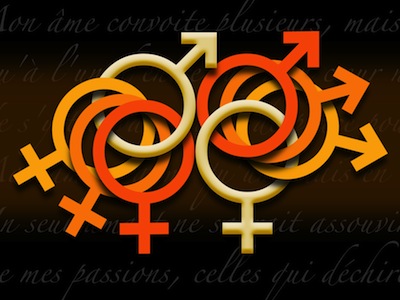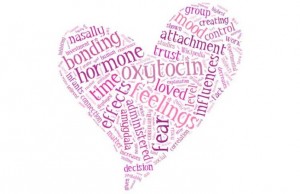Personal Is Political: Thoughts on Loving Women
By Hannah Yore
 I fall asleep each night next to a man who I am deeply in love. We share secrets that we have collected throughout the day with one another, careful to whisper underneath the covers as we pour over the details of our lives. This act is exclusionary, and it is ours.
I fall asleep each night next to a man who I am deeply in love. We share secrets that we have collected throughout the day with one another, careful to whisper underneath the covers as we pour over the details of our lives. This act is exclusionary, and it is ours.
I am often told how fortunate I am to be in a loving, committed relationship. Friends and family alike recognize our partnership as one of sincerity and respect, and I have grown accustomed to those around me expressing their desire to be a part of something comparable. In many ways, I feel enormously fortunate to have found someone with whom I find such fulfillment.
Despite my devotion, however, I can’t help but worry bout how dating a man might overshadow my relationships with women. As a queer woman, I am painfully aware of the ways in which romantic relationships between men and women are taken more seriously than those between women or gender nonconforming folk. I am also cognizant that my current relationship affects the ways other queer folk “read” me. This aspect of my relationship and its effect on my identity has been and continues to be a very real and difficult part of my experience.
But when I think about how others prioritize heterosexual partnerships, I do not just consider how heterosexism erases queer love. I also think about the ways this logic can—and does—undermine women’s friendships with one another. After all, the fundamental idea behind all of this is that women do not have the ability to stimulate one another in a way that is comparable to the men in our lives. This perception undermines a range of intimacies between and among women, whether they be platonic, romantic, or sexual. This logic is particularly damaging for queer women like myself whose very existence counters heterosexist logic. But it also undermines the legitimacy and seriousness of female friendships.
 Women and girls are taught to prioritize heterosexual romantic and sexual intimacies at the expense of other relationships. We learn from a young age that true happiness and fulfillment come as a result of finding “the one” Finding “the one” means experiencing the most intense closeness and revealing our truest selves. As creatures who crave intimacy, we are constantly looking for a partner with whom we can share our lives. In this quest, we underplay how friendship offers offer us profound refuge, excitement, and joy. It is not that platonic relationships are deemed unimportant; they are simply regarded as secondary commitments.
Women and girls are taught to prioritize heterosexual romantic and sexual intimacies at the expense of other relationships. We learn from a young age that true happiness and fulfillment come as a result of finding “the one” Finding “the one” means experiencing the most intense closeness and revealing our truest selves. As creatures who crave intimacy, we are constantly looking for a partner with whom we can share our lives. In this quest, we underplay how friendship offers offer us profound refuge, excitement, and joy. It is not that platonic relationships are deemed unimportant; they are simply regarded as secondary commitments.
We perpetuate these priorities in the ways we speak to and behave towards one another. However well-intentioned, we inquire first about the wellbeing of one another’s partners rather than our community of friends. We also expect that couples will invariably accompany each other during moves, wish to raise children exclusively as a pair, and build a life centered around the nucleus of coupledom. Where does this leave the extremely intense, mystifying, and encompassing relationships that we have forged with our women friends throughout our lives?
Along these lines, in recent years, an abundance of research confirming the importance of friendships between women has emerged. For instance, a 2002 UCLA study found that women experience increased levels of the oxytocin—the cuddle hormone—in response to stress. When we respond to these increased levels of oxytocin, we are more likely to seek the companionship of other women and, when and if we do so, we experience yet another rush of oxytocin throughout our bodies. With the release of additional oxytocin, we are likely to experience a calming or soothing effect during times of substantial stress. While men are also capable of producing oxytocin during times of stress, heightened levels of testosterone undermine this effect while estrogen appears to magnify it.
Similarly, a 2014 study of women with breast cancer found that socially isolated women had a 34 percent higher risk of death than socially integrated women. The quality of women’s relationships with one another also affected their rates of survival. That is, women with comparatively low levels of support and smaller social networks were 61 percent more likely to die than those women with more substantial social networks. Yet another study, focused on the links between female friendship and breast cancer, reveals a similar finding regarding mind-body interventions. In this landmark study published in 1989, Dr. David Spiegal and colleagues found that women with metastic breast cancer who participated in intensive support-expressive therapy lived on an average 18 months longer than those who did not.
A look at these studies reveals myriad ways in which female friendships can profoundly enhance our lives, physically and spiritually. Many of us, however, do not need these statistics to teach us about the power of female friendships. It is something that we understand and experience intimately on a deeply personal level. We understand these bonds as integral to our very survival. We help one another care for families, manage and survive potent relationships, and overcome social, economic, and physical hardships.
 But perhaps what makes female friendships so awe-inspiring has less to do with pragmatic benefits and more to do with emotionality. The way our female friends can make us feel is profound. My experiences sharing myself with other women has been by far the most rewarding aspect of my existence. Many of us can recall the overwhelming thrill of making our very first best friend just as vividly as we recall our first kiss. We recall sharing late night phone calls, intertwined arms and legs, promises, and laughter with our female friends. We are also familiar with the pain that comes with losing a female best friend. And while this iteration of loss should be regarded as no less than “heartbreak,” we do not have access to an abundance of love songs and poems dedicated to this experience of grief. Instead, we turn inwards, unsure how to mourn the loss of our women friends in the absence of script.
But perhaps what makes female friendships so awe-inspiring has less to do with pragmatic benefits and more to do with emotionality. The way our female friends can make us feel is profound. My experiences sharing myself with other women has been by far the most rewarding aspect of my existence. Many of us can recall the overwhelming thrill of making our very first best friend just as vividly as we recall our first kiss. We recall sharing late night phone calls, intertwined arms and legs, promises, and laughter with our female friends. We are also familiar with the pain that comes with losing a female best friend. And while this iteration of loss should be regarded as no less than “heartbreak,” we do not have access to an abundance of love songs and poems dedicated to this experience of grief. Instead, we turn inwards, unsure how to mourn the loss of our women friends in the absence of script.
If friendship between women has the potential to be so transformative, why do we continue to privilege monogamous, romantic intimacies, particularly been men and women? Perhaps it is because we fear making ourselves vulnerable to too many people. Or perhaps, we are so committed to the ideals of the nuclear family that we feel this prioritization is integral to our survival. Whatever the reason, it is clear that our erasure of particular experiences and bonds with other women does a disservice to the ways in which women have shaped and enriched our lives.
Still, taking female friendships seriously does not necessarily undermine the importance of heterosexual sexual and romantic partnership(s). Nor does it imply that having a relationship with a man necessarily compromises one’s devotion to and appreciation of women. What it does require, however, is that we are critical of the ways in which others expect us to prioritize heterosexual relationships. In order to do this, we need to actively resist the notion that only men have the ability to enliven our love and desire. Only once we begin to celebrate the many ways women can and do matter can we expect to live fuller, more emotive lives.
 Hannah Yore is currently completing her Master’s Degree in International Development and Social Change at Clark University. Hannah is a feminist activist scholar who has worked both internationally and domestically on issues of reproductive justice, gender- based violence, and climate change in the Americas. She presently works with the International Center for Agriculture’s Gender Advisory Board and AIDS Project Worcester’s prevention and screening division.
Hannah Yore is currently completing her Master’s Degree in International Development and Social Change at Clark University. Hannah is a feminist activist scholar who has worked both internationally and domestically on issues of reproductive justice, gender- based violence, and climate change in the Americas. She presently works with the International Center for Agriculture’s Gender Advisory Board and AIDS Project Worcester’s prevention and screening division.



2 Comments